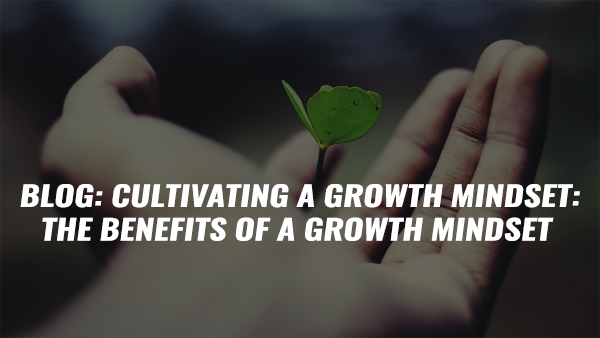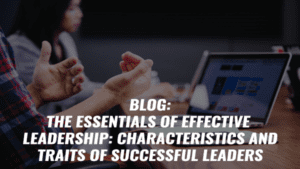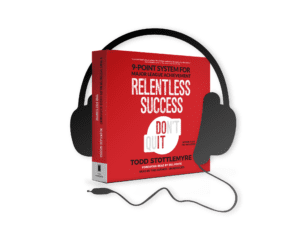Introduction
It’s a common misconception that our intelligence and skills are fixed. In fact, we can grow both with effort and practice. The key is embracing a growth mindset—a belief that your intelligence and talents can be developed through dedication and hard work.
A growth mindset has many benefits: It helps us learn from mistakes instead of giving up when we struggle; it boosts our confidence so we’re more likely to try new things; it helps us avoid procrastination because we don’t put off tasks until later because they’re too difficult; and it helps us enjoy learning more by seeing each new thing as an opportunity to stretch ourselves rather than something that might prove beyond our abilities.
What is a growth mindset?
A growth mindset is a belief that you can get better at something with effort. It’s different from a fixed mindset, which is the belief that your intelligence or abilities are set in stone and cannot be changed. A person with a growth mindset believes that her skills can improve over time through effort, practice and feedback.
A growth mindset doesn’t mean you’re perfect–it means that you’re willing to learn from mistakes, take risks and push yourself outside of your comfort zone when necessary. The most successful people have been those who’ve embraced challenges head-on instead of avoiding them out of fear or self-doubt (or both).
Why is a growth mindset important?
A growth mindset is a powerful way to think about learning. It’s important for personal development, workplace performance and business development. The same goes for teams and personal growth.
A growth mindset helps us to:
- Understand that we can always improve our skills if we put in the hard work and effort needed to do so;
- Confront challenges with confidence because we know that whatever happens next is just another opportunity to learn something new;
- Take on new challenges without fear of failure because we know that failure comes with every success (and vice versa);
- Work harder at tasks or projects than someone else who may have more natural talent but less drive or commitment to succeed
How to develop a growth mindset
- Use a growth mindset to tackle challenges. When you’re faced with a challenge, ask yourself: “What can I learn from this?” Instead of giving up when things get hard, look for ways to improve your skills and abilities.
- Give yourself enough time to develop a growth mindset. It takes time for people to unlearn the beliefs they’ve held since childhood (if they ever do), so don’t expect overnight results! Even if it feels like nothing is happening, keep trying–you’ll see results eventually!
- Make a conscious effort to change your mindset. If you want to develop a growth mindset, then make sure that every decision and thought comes from this perspective instead of the fixed one that says “I am who I am.” It takes practice but eventually becomes second nature once fully integrated into our daily lives; we just need some guidance along the way!
- Practice self-compassion when facing setbacks or failures because these are normal parts of life (and learning). Don’t beat yourself up over something not working out perfectly on its first try; instead focus on where improvements could be made next time around.”
Think “yet” instead of “but.”
If you’re in the habit of thinking “but,” try thinking “yet” instead. Instead of saying, “I can’t do this,” say, “I can’t do this yet.” Instead of saying, “I’m not good at this,” say, “I’m not good at this yet.” It’s a simple change in wording that makes all the difference! The conversations you have with yourself are powerful.
Emulate the people you admire.
If you’re trying to cultivate a growth mindset, it’s important to find role models who have that mindset and emulate them. You can use your role models as sources of inspiration and motivation when you are struggling with something new or difficult.
People to emulate include:
- Other people who have achieved success in areas similar to yours (for example, entrepreneurs who started their own businesses)
- People with different life experiences than yours (for example, if you’re an introvert learning public speaking skills)
Practice self-compassion.
One of the most difficult things about learning to be more self-compassionate is that it involves being kind to yourself, which can feel unnatural and uncomfortable at first. But as you learn to treat yourself with the same kindness, care, and concern that you would show a good friend in similar circumstances, it will become easier over time (and actually feel good!).
Learn from setbacks.
One of the most important things to learn from setbacks is that you can’t control everything. You can only control your actions and how hard you work, so keep that in mind when things don’t go your way.
Another thing to keep in mind is not to be too hard on yourself when things don’t work out as planned. Try not to think about what could have been or who else might have done better–instead focus on what went wrong and how you can improve next time. If someone has criticized your efforts or performance, take it with a grain of salt and try not to let it get under your skin too much! Remember: there will always be people who think less of our abilities than we do ourselves; their opinions shouldn’t affect our self-confidence unless we allow them too much power over our thoughts (which would be counter-productive).
Identify your triggers.
To identify the triggers that lead to a fixed mindset, you can ask yourself the following questions:
- What are the situations that make me feel like I have a fixed mindset?
- How do I know when I’m in this mindset? Do certain thoughts or feelings come up for me in these situations?
For example, if you tend to feel like your intelligence is fixed when someone praises your work or tells you how smart they think you are, then this may be one of your triggers. You could avoid this trigger by not accepting praise from others unless it’s clear that it was intended as constructive feedback rather than flattery (e.g., “I really appreciate how much effort and time went into creating this report!”).
Argue against negative thoughts.
You can’t argue with your thoughts, but you can argue against them. When you notice a negative thought, question its evidence. Ask yourself: “Is this really true?” If the answer is no and it’s just an opinion or a feeling–if there’s no actual proof behind it–then don’t let the thought continue to run wild in your head.
When questioning evidence for negative thoughts, ask yourself:
- Is there any way that this could be true?
- What evidence do I have for believing this?
- Have I experienced anything like this before that was not as bad as I expected it would be (or even good)?
A growth mindset is not a quick fix, but with time and practice, it can become second nature.
If you want to cultivate a growth mindset in your students or children, here are some ways to do so:
- Help them see that success comes from hard work and effort.
- Encourage them when they fail at something–and remind yourself that failing is often part of the process of learning something new!
Conclusion
A growth mindset is not a quick fix, but with time and practice, it can become second nature. The key is to keep your mind open to change and new ideas, even if they feel uncomfortable at first. When faced with setbacks or failures, focus on how they can improve your next attempt rather than dwelling on the past failure itself. Finally, try out some of these tips in the next few days–they may seem like small steps towards cultivating a growth mindset at first glance but over time they add up!









